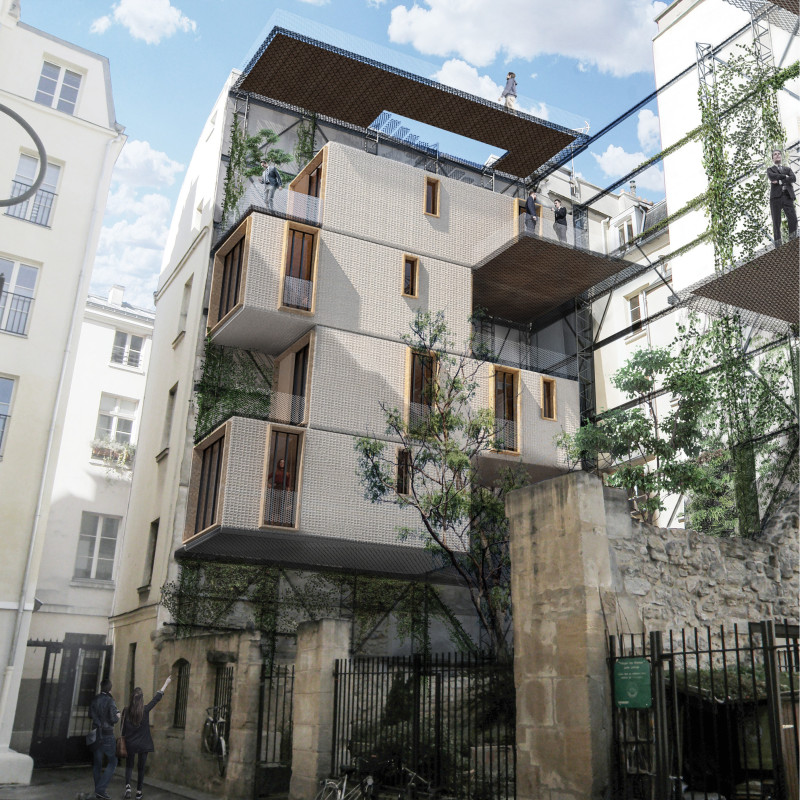5 key facts about this project
HabitLib' offers a new response to urban housing needs by transforming underused city spaces into practical living areas. The design focuses on addressing the demand for temporary homes suitable for a varied population, including students and professionals. The concept centers on flexibility and sustainability, featuring modular housing units that adapt to the changing requirements of urban residents while retaining connections to natural elements.
Materiality
The project employs biocomposite materials, which include natural flax and hemp fibers combined with resins sourced from agricultural waste. This choice supports environmental sustainability by ensuring that the buildings are lightweight and efficient. Using these materials helps to lower the ecological footprint of the housing units while maintaining structural integrity and long-term durability.
Modular Design
A key feature of HabitLib' is its modular design, which allows units to be quickly assembled and taken apart. This feature provides flexibility to adapt to different living situations, making it easier for residents to find the ideal arrangement. The design fosters a sense of community by encouraging interaction among residents while ensuring they have private spaces of their own.
Integration with Nature
The architectural approach emphasizes the importance of integrating natural elements into urban living. Residents are provided the opportunity to experience green spaces that resemble tree houses or gardens. This connection to nature enhances the living experience, creating a sense of well-being for those who inhabit the space. The design does not only focus on aesthetics but also promotes overall quality of life.
Functional Efficiency
HabitLib' units come fully furnished and equipped to meet basic living needs within a compact layout. Heating and hot water systems connect directly to urban infrastructure, which improves overall efficiency and reduces the need for individual utility setups. The inclusion of vertical gardens adds another dimension to the design, enhancing both its visual appeal and environmental impact. The thoughtful layout encourages harmony between residential living and urban ecology.





















































